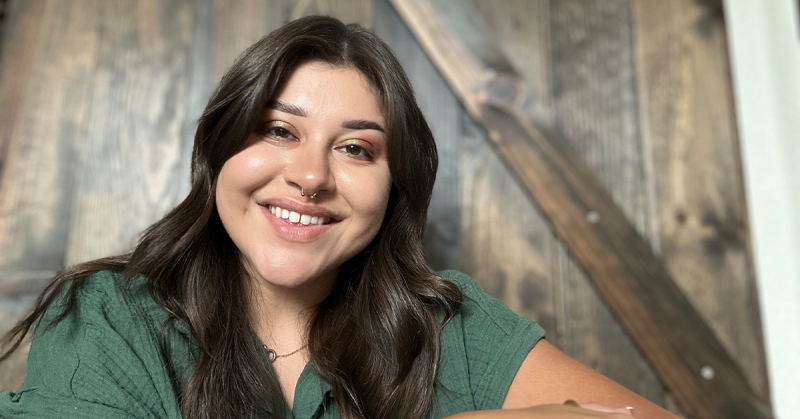Bringing a Human Perspective to Policymaking
Recent MSW grad Maxine Metzger aims to improve programs and policymaking

While working at an agency that offered medication-assisted treatment, Maxine Metzger saw firsthand how governmental and organizational policies interacted to affect clients and the ways social workers could do their jobs. For example, Metzger says, caseloads at the agency sometimes exceeded 70 patients — a number greater than even the best social worker could manage effectively.
Metzger explains, “Caseloads would go up due to turnover, but care for clients decreased, the amount of time spent with clients decreased, individual case plans decreased. Policies ended up impacting care.”
Metzger enrolled in the University of Denver Graduate School of Social Work (GSSW) Denver Campus MSW Program hoping to improve those sorts of situations, or prevent them altogether. They graduated this spring with an MSW specialization in Organizational Leadership & Policy Practice.
Metzger observes that “Social work is uniquely situated to bring together the micro and macro; social workers bring a really human perspective to policy.” That includes how to translate research for broad dissemination and how to combine quantitative research with real human stories “in a way that allows policymakers better access to people in their community.”
Metzger hopes to put their degree to work in a role that blends research and policy and says the MSW program prepared them well for both. During their first year, Metzger’s field placement was with the Colorado General Assembly. The following year, Metzger completed their field education at GSSW’s Center for Housing and Homelessness Research. There, they worked on projects related to the Denver Basic Income Project and “Dignified Design” (formerly known as trauma-informed design), conducting qualitative interviews, assisting with quantitative analysis, completing literature reviews and even co-authoring papers for conferences and journals.
Metzger says they also benefitted from unique courses on topics such as social environmental impact assessments and restorative approaches, as well as courses covering evaluation methods and planning and program development.
They add, “Getting to learn from people who have been studying something for 20 years and ask hard questions and have deep discussions — that’s been really valuable. Every quarter this year, I’ve had a class or two where it’s just fundamentally changed the way I think about things.” Learning from peers was just as meaningful, Metzger says. “The dialogues we had in and out of the classroom were among the best parts of my experience.”




